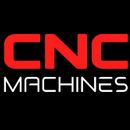Reshoring Manufacturing: The Role of CNC in Bringing Jobs Back to America

Reshoring Manufacturing: The Role of CNC in Bringing Jobs Back to America
In recent years, the United States has witnessed a significant shift in manufacturing strategies, with many companies opting to reshore operations previously moved overseas. Central to this movement is the adoption of advanced Computer Numerical Control (CNC) technologies, which are enhancing domestic production capabilities and reducing reliance on foreign manufacturing.
The Reshoring Movement: A Brief Overview
Reshoring refers to the process of bringing manufacturing and services back to the U.S. from overseas. This trend has gained momentum due to factors such as rising labor costs abroad, supply chain disruptions, and a growing emphasis on quality control and intellectual property protection. The COVID-19 pandemic further highlighted vulnerabilities in global supply chains, prompting companies to reconsider the benefits of localizing production.
CNC Technology: The Backbone of Modern Reshoring
CNC machines have revolutionized manufacturing by automating precision tasks, reducing human error, and increasing production efficiency. Their role in reshoring is multifaceted:
- Enhanced Precision and Quality: CNC machines offer unparalleled accuracy, ensuring consistent product quality that meets stringent industry standards.
- Increased Efficiency: Automation reduces production time and labor costs, making domestic manufacturing more competitive.
- Flexibility: CNC machines can be quickly reprogrammed to produce different parts, allowing manufacturers to adapt to changing market demands.
- Integration with Advanced Technologies: Modern CNC systems can be integrated with AI and IoT technologies, enabling predictive maintenance and real-time monitoring.
Economic Impacts of Reshoring with CNC
The integration of CNC technologies in reshoring efforts has led to several economic benefits:
- Job Creation: As manufacturing returns to the U.S., new jobs are being created, particularly in skilled trades and engineering.
- Investment in Infrastructure: Companies are investing in modern facilities equipped with advanced CNC machinery, stimulating local economies.
- Reduction in Lead Times: Domestic production shortens supply chains, reducing lead times and improving responsiveness to market changes.
Challenges and Considerations
While reshoring presents numerous advantages, it also comes with challenges:
- Skilled Labor Shortage: There's a growing need for workers trained in CNC operations and maintenance.
- Initial Capital Investment: Upgrading or establishing facilities with advanced CNC equipment requires significant upfront costs.
- Regulatory Compliance: Domestic manufacturers must navigate complex regulatory environments, which can impact operational efficiency.
The Future of Reshoring and CNC in America
The synergy between reshoring initiatives and CNC technology adoption is poised to redefine the American manufacturing landscape. As companies continue to recognize the benefits of localized production and invest in advanced manufacturing technologies, the U.S. is set to strengthen its position as a global manufacturing leader.


